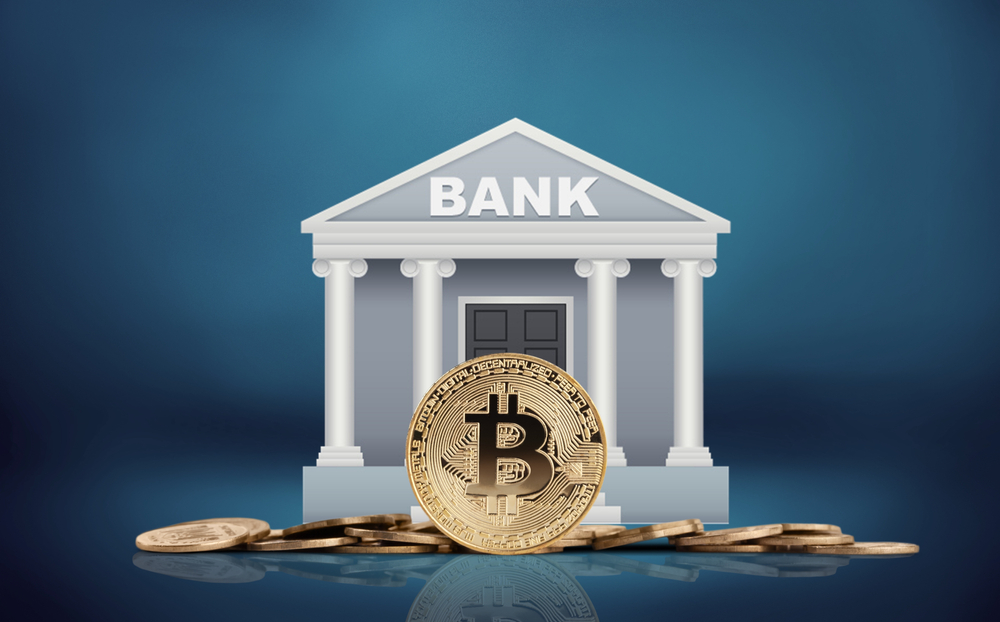
Institutional Adoption: What It Means for Retail Investors
Category: Forex / CFDs / Indices Brokers (with crypto)
The world of cryptocurrency is no longer just a playground for tech enthusiasts and retail traders. In recent years, institutional adoption of crypto assets has gained serious momentum, with major banks, hedge funds, and publicly traded companies stepping into the blockchain arena.
But what does this trend mean for retail investors? Is it a sign to jump in, or a warning to proceed with caution?
Let’s break it down.
WHAT IS INSTITUTIONAL ADOPTION?
Institutional adoption refers to large financial entities: such as investment firms, pension funds, insurance companies, and multinational corporations: investing in or supporting cryptocurrency and blockchain-based projects.
Examples of institutional involvement include:
• BlackRock launching a Bitcoin ETF
• Fidelity offering crypto to retirement accounts
• Tesla purchasing Bitcoin as part of its treasury
• Goldman Sachs and JPMorgan launching crypto trading desks
These moves mark a shift from crypto being viewed as speculative and risky to being treated as a legitimate asset class.
WHY INSTITUTIONS ARE GETTING INVOLVED
Several factors are driving institutions toward crypto:
1. Inflation Hedge
Many institutions see Bitcoin and select altcoins as a hedge against fiat currency devaluation, especially during times of high inflation.
2. Portfolio Diversification
Crypto offers a non-correlated asset that can improve long-term portfolio performance through diversification.
3. Client Demand
As high-net-worth individuals and millennial investors seek crypto exposure, firms must adapt to stay competitive.
4. Blockchain Innovation
Beyond just coins, institutions are interested in blockchain’s utility, including tokenization, smart contracts, and decentralized finance (DeFi).
WHAT IT MEANS FOR RETAIL INVESTORS
Now, here’s what institutional adoption means for you, the everyday investor:
1. Increased Legitimacy
Institutional involvement validates the crypto industry, reducing the stigma of “fake internet money” and attracting more traditional investors.
What this means for retail investors: Greater public trust, more regulated platforms, and reduced fear of rug pulls or scams on mainstream assets.
2. Improved Market Infrastructure
Institutions demand reliable, secure systems, which leads to:
• Better custodial services
• Safer exchanges
• Institutional-grade tools and analytics
This helps retail users access more secure, user-friendly, and professional-grade crypto services.
3. More Regulation (Good & Bad)
With institutions comes government attention. Regulations are increasing globally to protect investors and ensure compliance.
Pro: Protection from fraud, better transparency
Con: Possible restrictions on DeFi, privacy coins, and smaller tokens
4. Price Stability & Growth Potential
When institutions enter the market with large capital, price volatility may reduce over time, leading to more stable long-term growth.
Retail investors benefit from more predictable market movements and increased asset value driven by demand.
5. Reduced “First-Mover” Advantage
As crypto becomes mainstream, the days of 100x gains on obscure tokens may be fading.
Retail investors now compete with whales and algorithms — so deep research and smart strategies are crucial.
HOW RETAIL INVESTORS CAN ADAPT
Want to benefit from this institutional wave? Here's how:
• Educate Yourself: Understand the fundamentals of projects, not just the hype.
• Diversify Smartly: Include both established cryptos (e.g., BTC, ETH) and promising altcoins.
• Use Reputable Platforms: Stick to exchanges and wallets with strong security and regulatory compliance.
• Keep a Long-Term View: Follow what institutions are buying, they often think in years, not weeks.
SUMMARY
Institutional adoption is a double-edged sword, it brings maturity, security, and growth to the crypto market, but it also tightens competition and invites regulation.
For retail investors, this shift presents an opportunity, not a threat.
If you remain educated, patient, and proactive, you can still thrive in this evolving landscape.
But what does this trend mean for retail investors? Is it a sign to jump in, or a warning to proceed with caution?
Let’s break it down.
WHAT IS INSTITUTIONAL ADOPTION?
Institutional adoption refers to large financial entities: such as investment firms, pension funds, insurance companies, and multinational corporations: investing in or supporting cryptocurrency and blockchain-based projects.
Examples of institutional involvement include:
• BlackRock launching a Bitcoin ETF
• Fidelity offering crypto to retirement accounts
• Tesla purchasing Bitcoin as part of its treasury
• Goldman Sachs and JPMorgan launching crypto trading desks
These moves mark a shift from crypto being viewed as speculative and risky to being treated as a legitimate asset class.
WHY INSTITUTIONS ARE GETTING INVOLVED
Several factors are driving institutions toward crypto:
1. Inflation Hedge
Many institutions see Bitcoin and select altcoins as a hedge against fiat currency devaluation, especially during times of high inflation.
2. Portfolio Diversification
Crypto offers a non-correlated asset that can improve long-term portfolio performance through diversification.
3. Client Demand
As high-net-worth individuals and millennial investors seek crypto exposure, firms must adapt to stay competitive.
4. Blockchain Innovation
Beyond just coins, institutions are interested in blockchain’s utility, including tokenization, smart contracts, and decentralized finance (DeFi).
WHAT IT MEANS FOR RETAIL INVESTORS
Now, here’s what institutional adoption means for you, the everyday investor:
1. Increased Legitimacy
Institutional involvement validates the crypto industry, reducing the stigma of “fake internet money” and attracting more traditional investors.
What this means for retail investors: Greater public trust, more regulated platforms, and reduced fear of rug pulls or scams on mainstream assets.
2. Improved Market Infrastructure
Institutions demand reliable, secure systems, which leads to:
• Better custodial services
• Safer exchanges
• Institutional-grade tools and analytics
This helps retail users access more secure, user-friendly, and professional-grade crypto services.
3. More Regulation (Good & Bad)
With institutions comes government attention. Regulations are increasing globally to protect investors and ensure compliance.
Pro: Protection from fraud, better transparency
Con: Possible restrictions on DeFi, privacy coins, and smaller tokens
4. Price Stability & Growth Potential
When institutions enter the market with large capital, price volatility may reduce over time, leading to more stable long-term growth.
Retail investors benefit from more predictable market movements and increased asset value driven by demand.
5. Reduced “First-Mover” Advantage
As crypto becomes mainstream, the days of 100x gains on obscure tokens may be fading.
Retail investors now compete with whales and algorithms — so deep research and smart strategies are crucial.
HOW RETAIL INVESTORS CAN ADAPT
Want to benefit from this institutional wave? Here's how:
• Educate Yourself: Understand the fundamentals of projects, not just the hype.
• Diversify Smartly: Include both established cryptos (e.g., BTC, ETH) and promising altcoins.
• Use Reputable Platforms: Stick to exchanges and wallets with strong security and regulatory compliance.
• Keep a Long-Term View: Follow what institutions are buying, they often think in years, not weeks.
SUMMARY
Institutional adoption is a double-edged sword, it brings maturity, security, and growth to the crypto market, but it also tightens competition and invites regulation.
For retail investors, this shift presents an opportunity, not a threat.
If you remain educated, patient, and proactive, you can still thrive in this evolving landscape.




